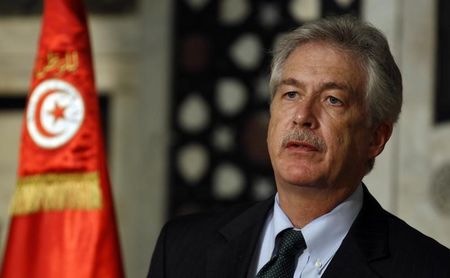Iran, U.S. officials hold nuclear talks in Geneva to narrow gaps

GENEVA (Reuters) – Iranian and U.S. officials met in Geneva on Thursday for the first time since the Islamic state and six world powers agreed to extend talks to resolve a decade-long dispute over Iran’s nuclear ambitions.
When they last met on July 19, Iran, the United States, Britain, France, Germany, Russia and China agreed to extend the deadline to reach a comprehensive agreement under which Iran would curb its nuclear activities in exchange for the easing of economic sanctions to Nov. 24 from July 20.
Announcing the talks in Washington on Wednesday, the State Department said Deputy Secretary of State Bill Burns would lead the U.S. delegation, which also includes Under Secretary of State Wendy Sherman and Jake Sullivan, the national security adviser to Vice President Joe Biden.
Burns and Sullivan are expected to leave the Obama administration this year.
Iran’s state news agency IRNA said on Thursday the talks had started, with deputy Foreign Minister Abbas Araqchi leading the Iranian delegation.
“The talks between Iran and America in Geneva will help overcoming differences over the remaining disputes,” an unnamed Iranian nuclear negotiator told IRNA.
Among the disputed issues are the permissible scope of Iran’s nuclear fuel production capacity and how to address the country’s suspected past atomic bomb research.
Iran and the powers penned a preliminary deal in Geneva in November 2013 to buy time for talks on a long-term deal. Under the interim accord Iran suspended higher-grade enrichment, a potential route to bomb-making, in exchange for some easing of sanctions that are battering its oil-dependent economy.
Western nations fear Iran’s nuclear programme may be aimed at developing a nuclear weapons capability, demanding Tehran to significantly scale back its nuclear enrichment programme to make sure it cannot yield nuclear bombs.
Iran says its nuclear programme is solely aimed at generating power and wants sanctions that have severely damaged its oil-dependent economy to be lifted as soon as possible.
More talks are likely to be held on the sidelines of the annual U.N. General Assembly (UNGA) in September, according to Iranian and European diplomats.
(Additional reporting by Marina Deptris; Writing by Parisa Hafezi; Editing by Sonya Hepinstall)